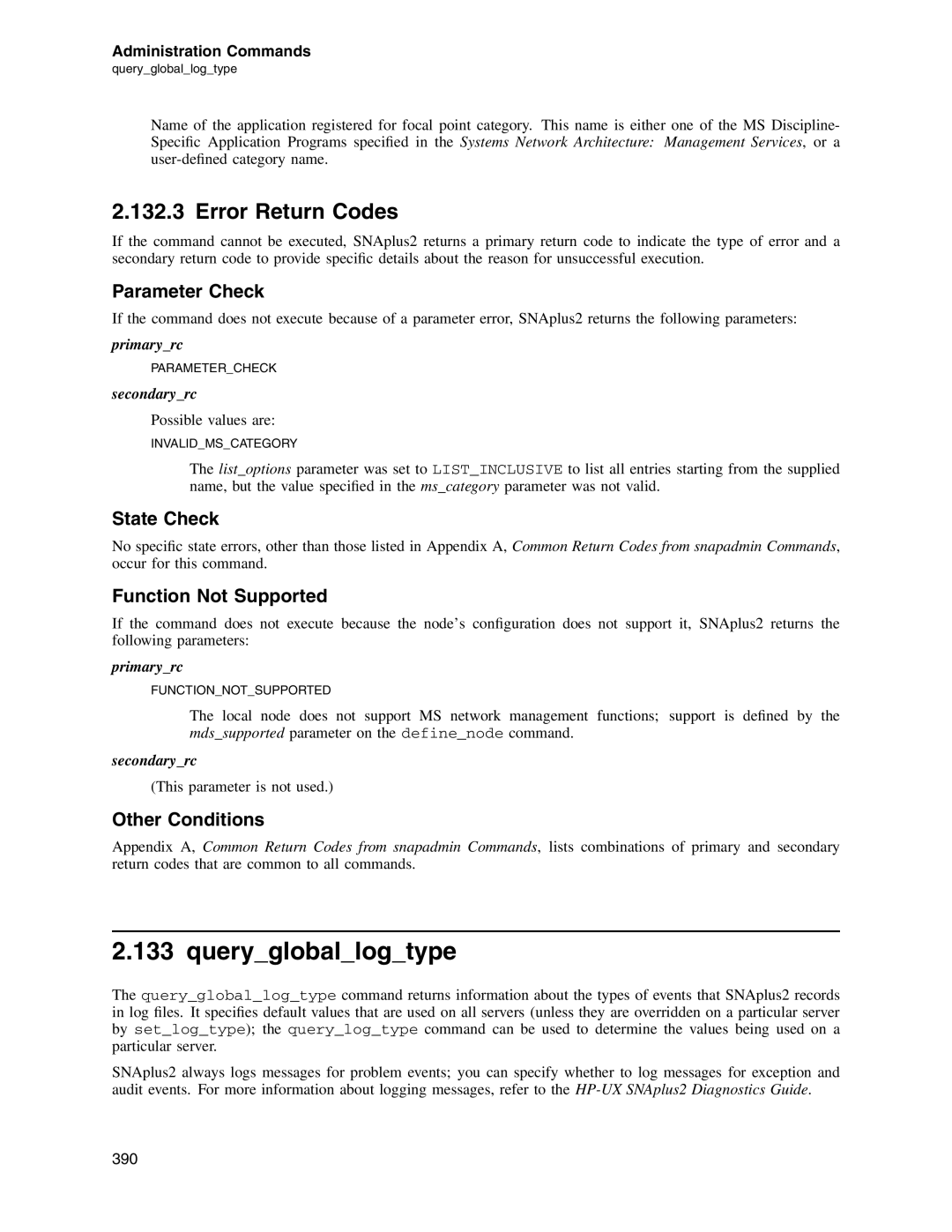Administration Commands
query_global_log_type
Name of the application registered for focal point category. This name is either one of the MS Discipline- Specific Application Programs specified in the Systems Network Architecture: Management Services, or a
2.132.3 Error Return Codes
If the command cannot be executed, SNAplus2 returns a primary return code to indicate the type of error and a secondary return code to provide specific details about the reason for unsuccessful execution.
Parameter Check
If the command does not execute because of a parameter error, SNAplus2 returns the following parameters:
primary_rc
PARAMETER_CHECK
secondary_rc
Possible values are:
INVALID_MS_CATEGORY
The list_options parameter was set to LIST_INCLUSIVE to list all entries starting from the supplied name, but the value specified in the ms_category parameter was not valid.
State Check
No specific state errors, other than those listed in Appendix A, Common Return Codes from snapadmin Commands, occur for this command.
Function Not Supported
If the command does not execute because the node’s configuration does not support it, SNAplus2 returns the following parameters:
primary_rc
FUNCTION_NOT_SUPPORTED
The local node does not support MS network management functions; support is defined by the mds_supported parameter on the define_node command.
secondary_rc
(This parameter is not used.)
Other Conditions
Appendix A, Common Return Codes from snapadmin Commands, lists combinations of primary and secondary return codes that are common to all commands.
2.133 query_global_log_type
The query_global_log_type command returns information about the types of events that SNAplus2 records in log files. It specifies default values that are used on all servers (unless they are overridden on a particular server by set_log_type); the query_log_type command can be used to determine the values being used on a particular server.
SNAplus2 always logs messages for problem events; you can specify whether to log messages for exception and audit events. For more information about logging messages, refer to the
390
